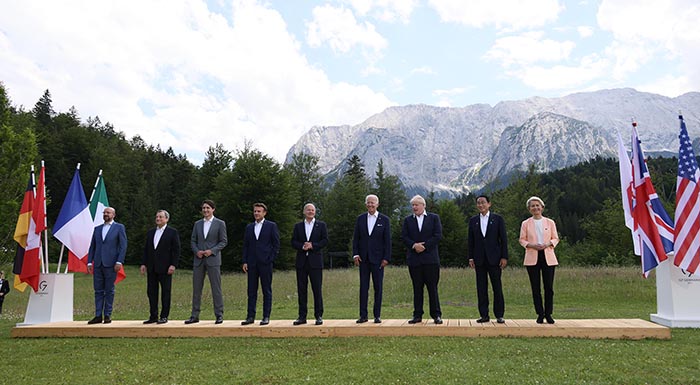G7 should work with developing countries to create climate club

London, UK
Developing countries must be involved in the creation of a ‘climate club’ which the G7 has pledged to establish by the end of this year, according to a report commissioned by the German Government and published today (Wednesday 12 October 2022) by the Grantham Research Institute on Climate Change and the Environment at the London School of Economics and Political Science.
The report also warns that a new climate club should not be seen as a rival to but designed to support the United Nations Framework Convention on Climate Change (UNFCCC) and the Paris Agreement, the Parties to which will gather next month at the COP27 summit in Sharm El Sheikh, Egypt.
The preparation of the independent report on ‘Collaborating and Delivering on Climate Action through a Climate Club’ was led by Professor Lord Nicholas Stern and Dr Hans Peter Lankes, who are respectively Chair and Visiting Professor at the Grantham Research Institute.
The report will be discussed today at a meeting of finance ministers in Washington DC, ahead of the annual meetings of the International Monetary Fund and the World Bank. It was commissioned by Bundesministerium der Finanzen on behalf of the German Presidency of the G7 in 2022.
The communiqué published on 28 June 2022 after the summit in Elmau, Germany, committed the G7 to “work with partners towards establishing an open, cooperative international Climate Club, consistent with international rules, by the end of 2022”.
The report points out that the climate club could “drive the climate agenda forward through a coordinated and collaborative approach among countries representing a large proportion of global greenhouse gas emissions”.
It states that a climate club “must be co-led and co-designed with emerging markets and developing economies (EMDEs) from the start” and that it “would be counterproductive to invite developing countries to join a ‘rich countries’ club’ not of their making”.
It also states: “The Climate Club must not create an alternative to the Paris Agreement. Members should cast their ambition through progressively higher targets under the annual UNFCCC process, and work to support and reinforce initiatives under the Paris umbrella rather than creating parallel tracks.”
The report also details the long-term impact for business, as the Climate Club “would offer a platform to consider approaches to scaling up bilateral and multilateral finance, and for creating conditions enabling much larger flows of private finance. Delivering on the commitment by developed countries to mobilise $100 billion a year by 2020 to support developing countries on climate action has become a crucial symbol of trust.”
The report sets out the main ‘pillars’ to make a climate club successful:
- Building partnerships, since the starting point must be mutual understanding and cooperation around goals, strategies and actions, complemented by partnerships around finance, capacity-building and technology.
- Managing policy diversity, reducing international tensions and trade frictions from climate policy especially around carbon leakage.
- Fostering sectoral alignment, by capturing strategic benefits and mutual gains from green industrial trade.
The report also outlines a role for a climate club to address “carbon leakage”: “So far, there is little evidence of carbon leakage – emissions moving abroad and production being replaced by imports due to tough climate policy requirements – but it is expected to become more significant in trade-exposed and emissions-intensive industries (EITE) as carbon prices and other policies start to bite. In this context, carbon border adjustment mechanisms (CBAMs) are gaining popularity as a tool to address leakage”.
However it also adds: “What is not advisable, however, is to seek to turn the Climate Club itself into a giant CBAM by creating treaty-bound club goods and penalties. A common CBAM would require a degree of policy harmonisation that is unlikely to be compatible with an open, inclusive approach.”
ENDS

